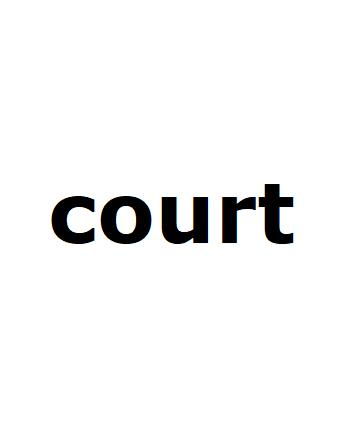Understanding the Concept of Court

Court, a term that carries significant weight in the legal domain, refers to a place where legal disputes are resolved. It is a place where justice is sought, and decisions are made based on the law. The word ‘court’ can be used in various contexts, from the literal sense of a courtroom to more abstract meanings like a court of public opinion.
Types of Courts

There are different types of courts, each with its own jurisdiction and purpose. Here’s a brief overview:
| Type of Court | Description |
|---|---|
| Civil Court | Resolves disputes between individuals, organizations, or entities, such as property, contract, or tort claims. |
| Criminal Court | Deals with offenses against the state, such as murder, theft, or fraud. |
| Family Court | Handles matters related to family law, such as divorce, child custody, and adoption. |
| Administrative Court | Deals with disputes between individuals and government agencies, such as immigration, employment, or environmental issues. |
The Role of Judges

Judges play a crucial role in the court system. They are responsible for ensuring that the law is applied fairly and impartially. Judges must be independent, unbiased, and have a deep understanding of the law. They are also responsible for interpreting the law and making decisions based on the evidence presented in court.
The Court Process
The court process varies depending on the type of court and the nature of the case. However, here’s a general overview of the steps involved:
-
Filing a lawsuit: The plaintiff files a complaint against the defendant, outlining the legal issues and requesting relief.
-
Discovery: Both parties exchange information and evidence relevant to the case.
-
Pre-trial motions: The court may hear motions to dismiss the case, exclude evidence, or resolve other legal issues before trial.
-
Trial: The case is presented to a judge or jury, who listens to evidence and testimony from both parties.
-
Verdict or decision: The judge or jury makes a decision based on the evidence and testimony presented.
-
Appeal: If either party is dissatisfied with the decision, they can appeal the case to a higher court.
Access to Court Information
Access to court information is essential for the functioning of the legal system. In many countries, courts provide online platforms where individuals can access information about cases, court schedules, and legal resources. For example, the United States has the Public Access to Court Electronic Records (PACER) system, which allows users to search and view case information from federal appellate, district, and bankruptcy courts.
The Importance of Court
The court system is a cornerstone of any democratic society. It ensures that individuals have access to justice, that laws are enforced, and that the rights of citizens are protected. The court system also serves as a check on the power of the government, ensuring that it operates within the bounds of the law.
Conclusion
Court, a term that encompasses a wide range of legal institutions and processes, plays a vital role in maintaining order, justice, and fairness in society. Understanding the concept of court and its various components is essential for anyone seeking to navigate the legal system or simply gain a deeper understanding of how justice is administered.



















